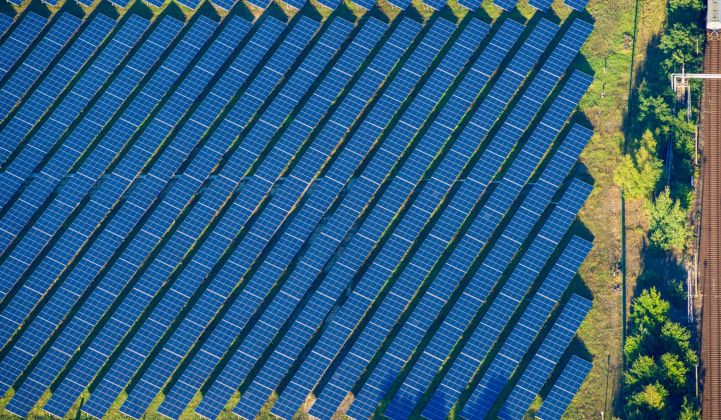Subsidy-free solar, already established in Southern European markets, is extending northward across Europe, with developers making the numbers stack up in Britain and Germany.
Last month, for example, the German utility Energie Baden-Württemberg (EnBW) inked a deal with solar developer Energiekontor for the purchase of all the electricity from an 85-megawatt solar park in Rostock in northern Germany, over 15 years.
The power-purchase agreement was described in a press release as “the first of its kind in Germany,” because Energiekontor will be building and operating the plant without subsidies from Germany’s Renewable Energy Sources Act.
EnBW expects to procure 1.3 terawatt-hours of energy from Energiekontor over the duration of the contract, or 88 gigawatt-hours a year.
“Our collaboration with Energiekontor is a key step in the implementation of solar power projects without state subsidies, including in Germany," said Peter Heydecker, head of the trading segment at EnBW, in the press note.
Energiekontor had already gained experience in subsidy-free renewable plant development with a wind farm in England, he noted. However, another company, Gridserve, has beaten Energiekontor to the finish line with no-subsidy solar in the U.K.
Gridserve unveiled plans for a pair of subsidy-free solar farms last month.
The first, being built near York, in north England, will feature 37.4 megawatts of PV tied to a 27-megawatt, 30-megawatt-hour Samsung battery system, the largest solar-paired energy storage asset in the country.
The second plant will have 25.7 megawatts of solar and will be located near Kingston upon Hull, in Yorkshire.
Innovation in the absence of subsidies
Gridserve said the plants, which are being funded by Investec Bank and Leapfrog Finance, would be the most advanced in the U.K. and the largest solar projects built on British soil since 2016.
On completion, Gridserve intends to sell both projects to the borough council of Warrington for a total of £62.3 million ($82.8 million), although the developer will continue to maintain and operate the plants.
In a press statement, Warrington Borough Council leader Russ Bowden claimed the plants would generate an estimated operating surplus of £150 million ($199 million) over 30 years.
Gridserve founder and CEO Toddington Harper, a former Belectric executive, said the plants employed an array of innovations to stay profitable in the absence of subsidies, which he claimed had accounted for almost half of U.K. PV profits until the support was axed last year.
One important novelty in the Gridserve plants, he said, is the use of bifacial panels from Suntech to increase energy output.
This, combined with a single-axis tracker, would allow each plant to generate at least 20 percent more energy than ones with standard panels and no tracking, Harper said.
The panels and trackers would also allow each plant to deliver electricity earlier and later in the day compared to traditional plants, he said. This would help the projects mitigate price cannibalization during periods of peak solar output.
Batteries and EV charging
Another way in which Gridserve tweaked its design to maximize profitability was by including an outsized battery system to boost utilization of its grid connection.
Under normal circumstances, said Harper, a solar plant would only use the full capacity of its grid connection around 15 percent of the time.
With a battery, however, the York plant would be able to use spare grid capacity for charging and discharging, potentially generating additional revenue. “We can shift energy from low value to high value,” Harper said.
The battery system will also allow the plant to deliver grid services such as frequency response, short-term operating reserve and black-start capabilities, he said. There are also plans to use the plants for EV charging, he stated.
Harper said Warrington Council was intending to use all the output from the Hull plant for self-consumption, while the York plant would be used to create revenue for the authority.
Work on the York plant is already underway, he said, with commissioning of both plants slated for October this year.
Although the projects are unique compared to others in the U.K., there is nothing to stop other developers in Central and Northern Europe from copying the concept, he said.
“In principle, what we’ve done is a solution that maximizes value,” Harper said. “That’s the formula.”




